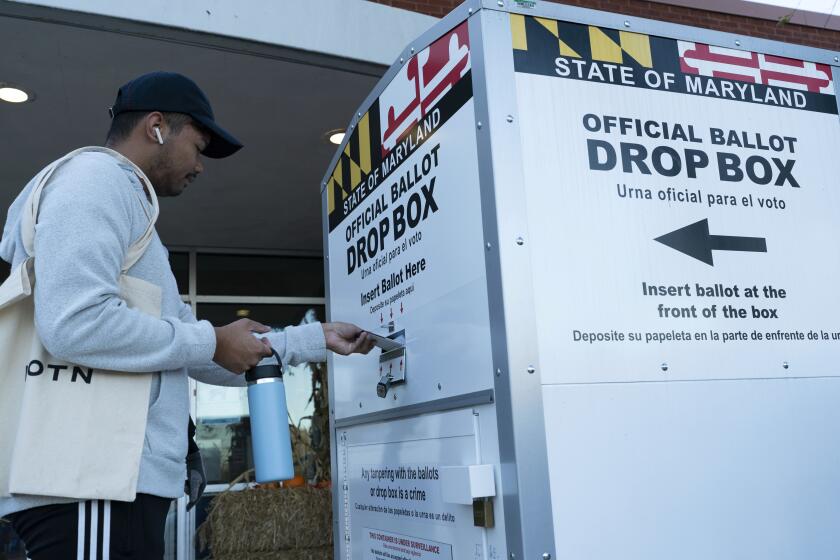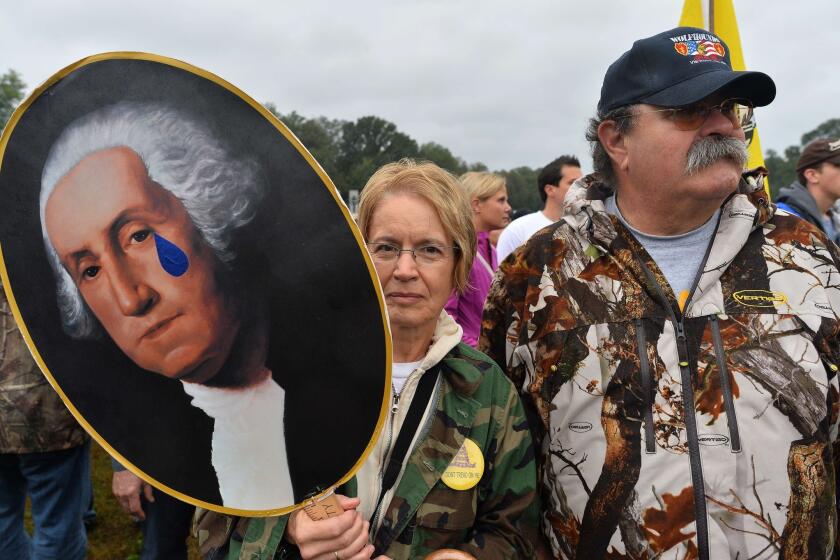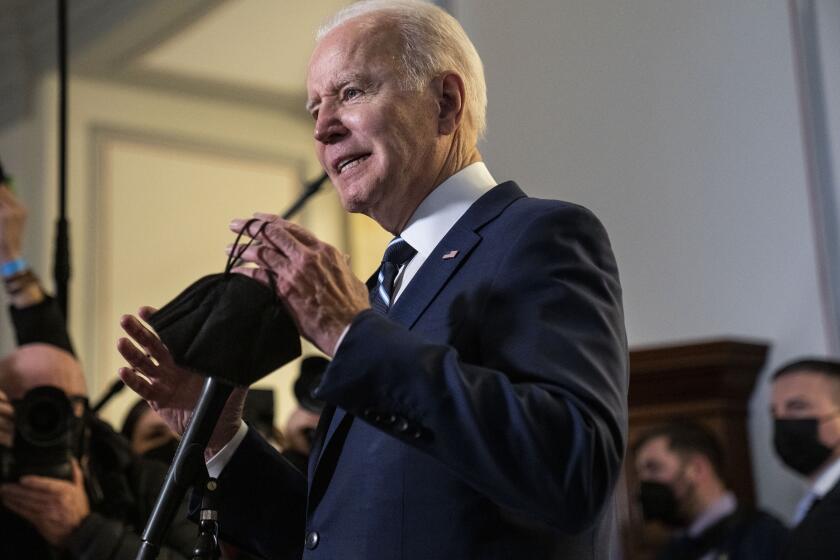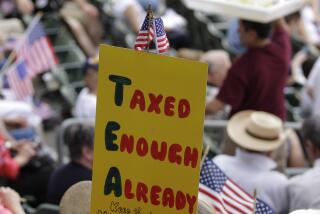Editorial: The Boston Tea Party 250 years later, and we’re still fighting for democracy

In the 250 years since members of the Sons of Liberty boarded ships in Boston Harbor to dump their cargo of imported tea overboard — on Dec. 16, 1773 — the right to protest over inadequate representation has been a central liberty of Americans.
There was already broad agreement in 18th century Britain and its American colonies that taxation without representation violated a supposedly free person’s rights.
The landmark law provides a check on attempts to weaken the political power of nonwhite voters. But it’s not much of a protection if it can’t be enforced.
But the British government had a far more limited view of what constitutes actual representation than the Colonists did. Parliament asserted that it represented the people in Britain’s American colonies even if they had no role in electing it.
After the Sons of Liberty action, Americans began to feel differently. A mercantile protest against tax breaks and corporate welfare for a private but influential monopoly (the British East India Co.) became a blow against the entire panoply of legislation and taxation adopted to coerce loyalty to the crown and Parliament.
The principle of no taxation without representation became increasingly about the definition of representation.
In the ensuing two and a half centuries, the American republic has moved in fits and starts toward perfecting democratic representation. It has had a very long way to go. Enslaved Africans and their descendants, Native Americans on reservations and women were represented in government in name only until recently, without voting power, the same way British Parliament once claimed to represent people who had no ability to say “yes” or “no” to their supposed delegates. In a sense, American democracy did not actually come into being until 1965, when the Voting Rights Act finally guaranteed Black voters equal rights to elect their government officials.
Their ultimate destination appears to be the 1780s and our dysfunctional government under the Articles of Confederation.
The fight isn’t over. Court rulings have permitted racial and partisan gerrymandering that undermine the Voting Rights Act and weaken the principle of one-person, one-vote — itself a fairly recent principle in American democracy. Residents of the District of Columbia will tell you, accurately, that they are taxed without representation. In many states, people who have served time for felonies cannot regain their right to vote, at least not without re-enfranchisement procedures so cumbersome as to be practically impossible.
Senate Democrats must do everything they can to pass the voting rights reforms while they still have the chance
One grating irony is the propensity of those who resist creating a more perfectly representative democracy to cloak their anti-democratic ideology in the symbolism of early American protests. For example, this century’s tea party movement was supposedly grounded solely in fiscal conservatism but soon included calls to repeal the 17th Amendment, which permits the people to directly elect their senators, and landmark court decisions such as Reynolds vs. Sims, the 1961 ruling that secured one-person, one-vote. Similar calls for rolling back voting power come from people co-opting yet other names from early American iconography, such as the Patriot movement or the Freedom Caucus.
In observing the semiquincentennial of the Boston Tea Party, it’s important to recall that although it began as an anti-tax protest, it was ultimately about the true meaning of representative government. The people of Boston in 1773 were unwilling to support a government in which they had no say. The Tea Party’s proper legacy is the continuing fight for fuller, more representative voting rights.
More to Read
A cure for the common opinion
Get thought-provoking perspectives with our weekly newsletter.
You may occasionally receive promotional content from the Los Angeles Times.













